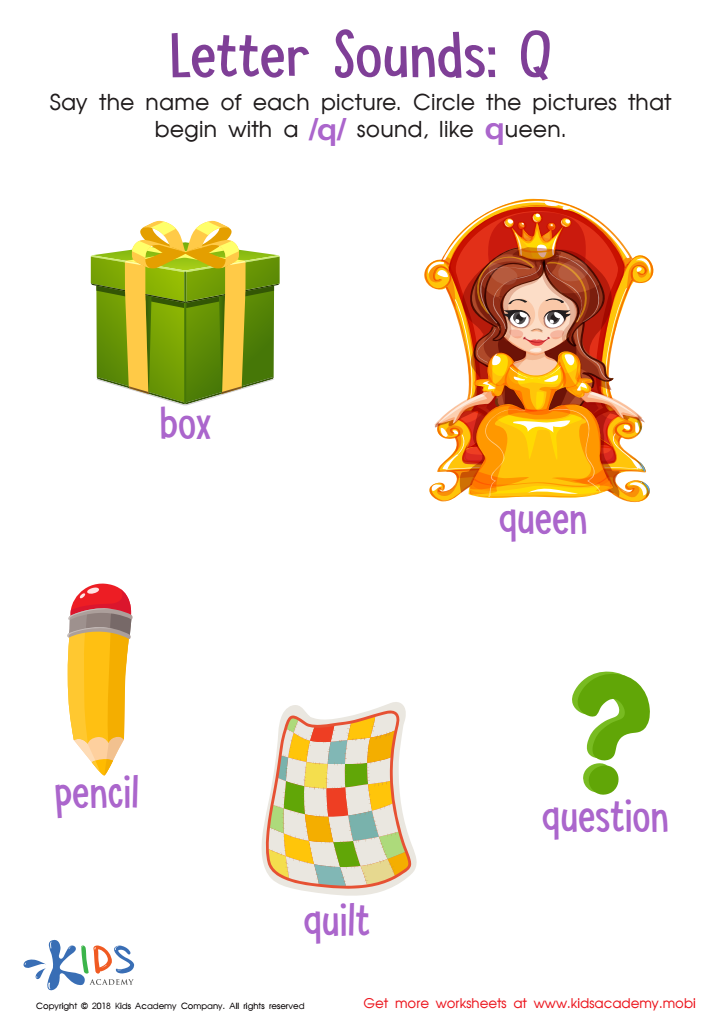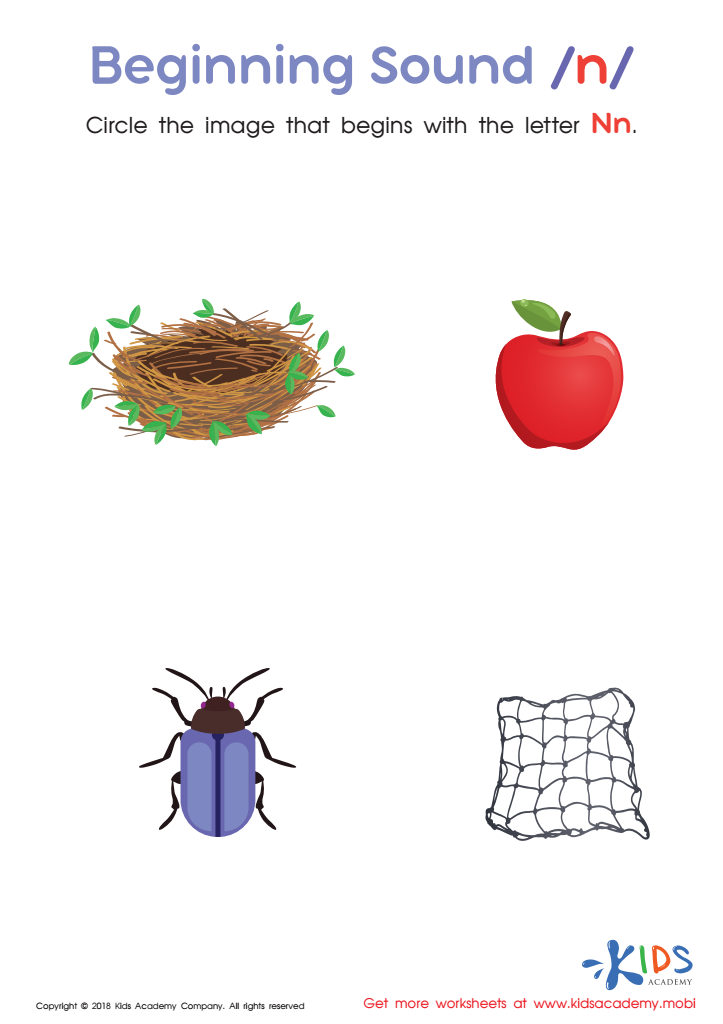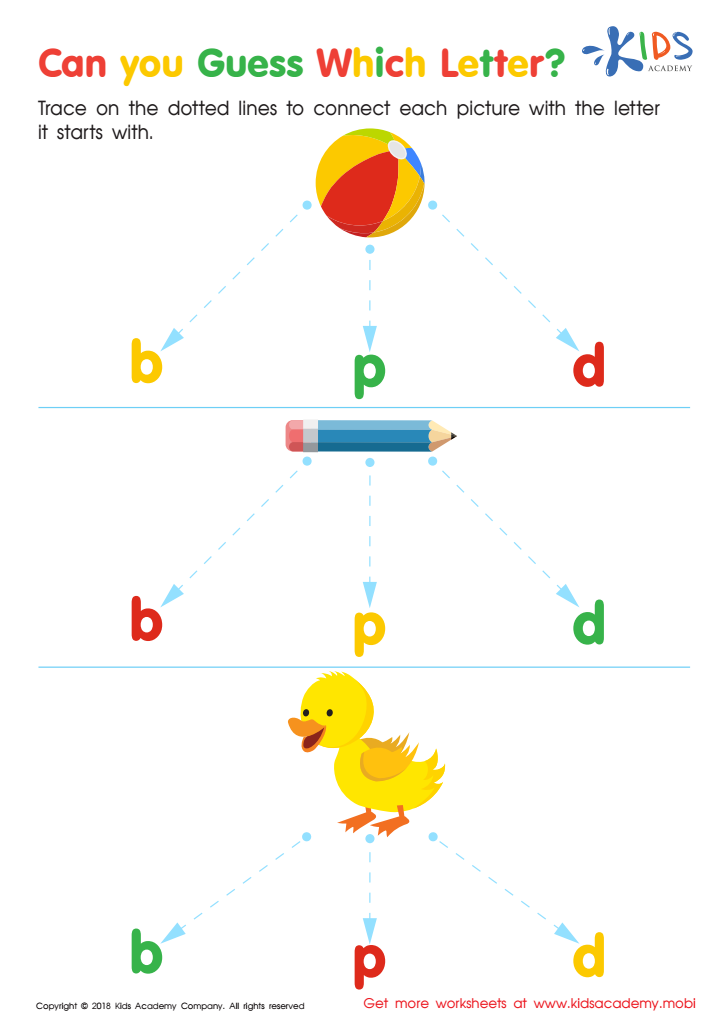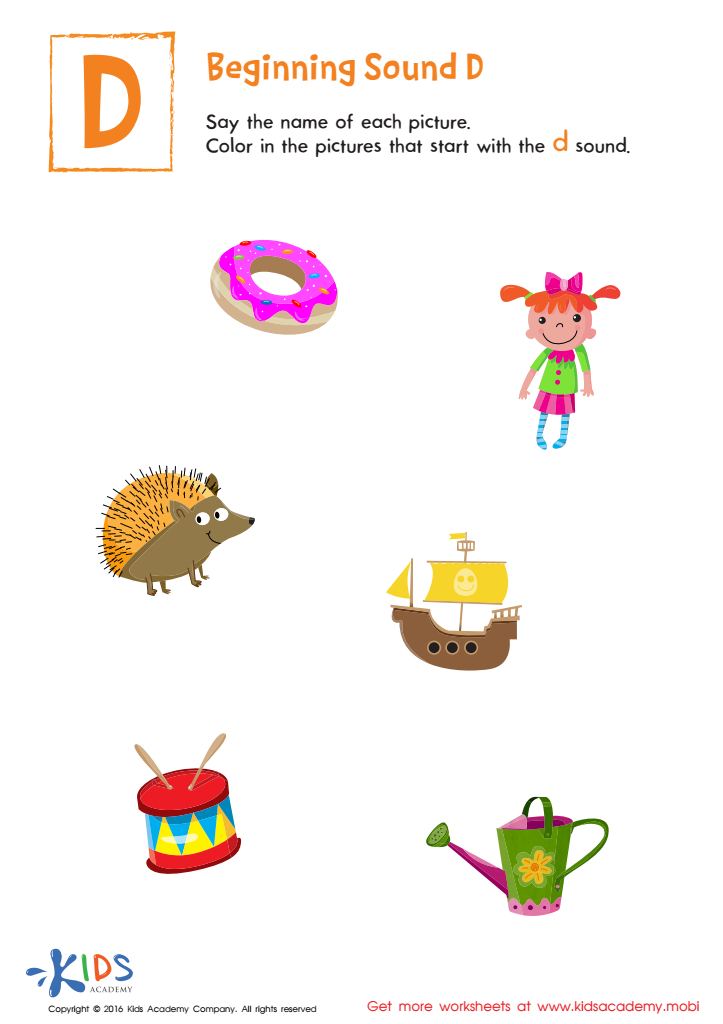Reading readiness Normal Alphabet Worksheets
5 filtered results
-
From - To
Enhance your child's reading readiness with our Normal Alphabet Worksheets! These engaging printables are designed to help young learners develop essential literacy skills through fun, interactive activities. Our worksheets focus on letter recognition, sound association, and early vocabulary development, providing an excellent foundation for reading. Each worksheet features colorful illustrations and age-appropriate exercises that capture children's interest and make learning enjoyable. Perfect for teachers, parents, and homeschoolers, these resources promote comprehension and language skills in a playful manner. Download our Reading Readiness Normal Alphabet Worksheets today and support your child's journey toward becoming a confident reader!


Letter Q Sounds Worksheet


Beginning Sound «n» Worksheet


Can you Guess Which Letter? Worksheet


Phonological Awareness: Assessment 1 Worksheet


Beginning Sound D Worksheet
Reading readiness is crucial for young learners as it sets the foundation for lifelong literacy and academic success. It encompasses a child's ability to recognize letters, understand sounds, and comprehend basic word structure. Parents and teachers should care about reading readiness, particularly with the Normal Alphabet, because it directly influences a child’s confidence and enthusiasm for learning.
When children are ready to read, they develop essential skills such as phonemic awareness, vocabulary acquisition, and comprehension, all of which are vital for understanding more complex texts in the future. Early literacy experiences also foster cognitive development, enhance critical thinking skills, and improve communication abilities.
Moreover, supporting children in their journey toward reading readiness promotes positive associations with learning, encouraging them to explore and engage with books and other educational materials. It helps instill a love for reading that can last a lifetime.
When parents and teachers actively support this process—through reading aloud, interactive games, and targeted strategies—they help mitigate potential learning challenges later on. By prioritizing reading readiness, adults play an essential role in nurturing competent, confident, and enthusiastic readers, ultimately setting kids on the path to academic achievement and a richer understanding of the world.
 Assign to My Students
Assign to My Students













